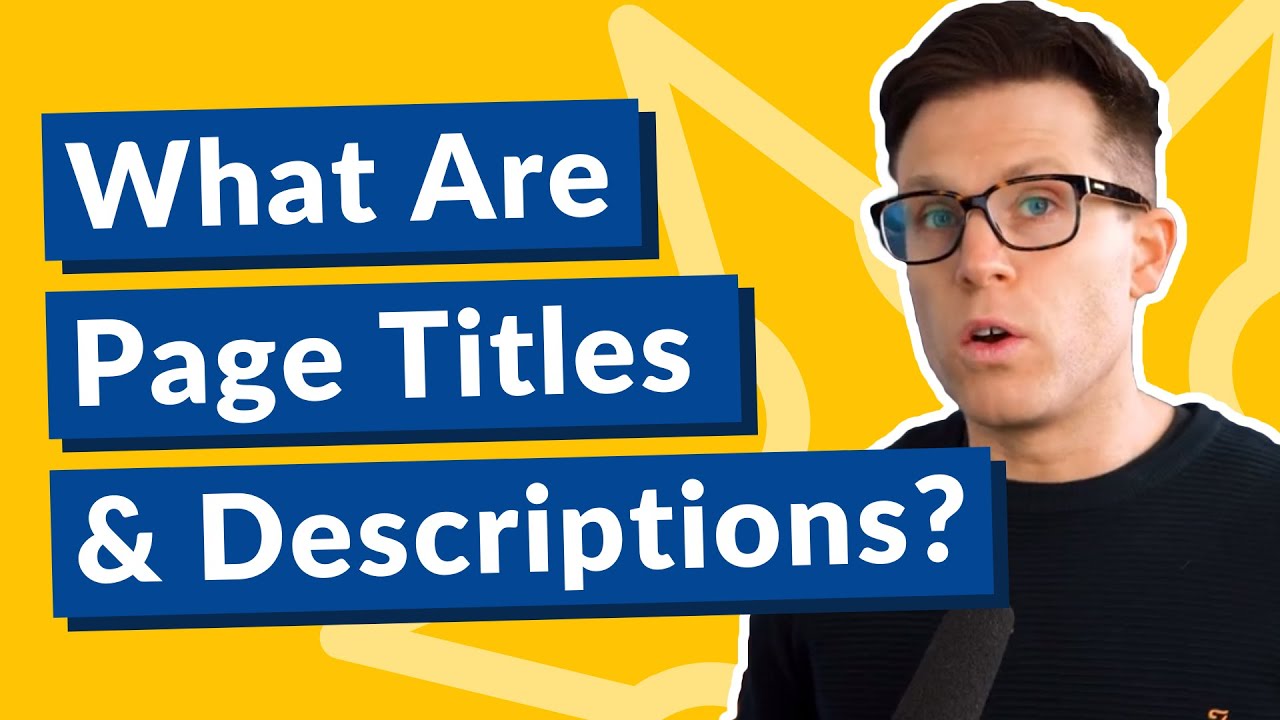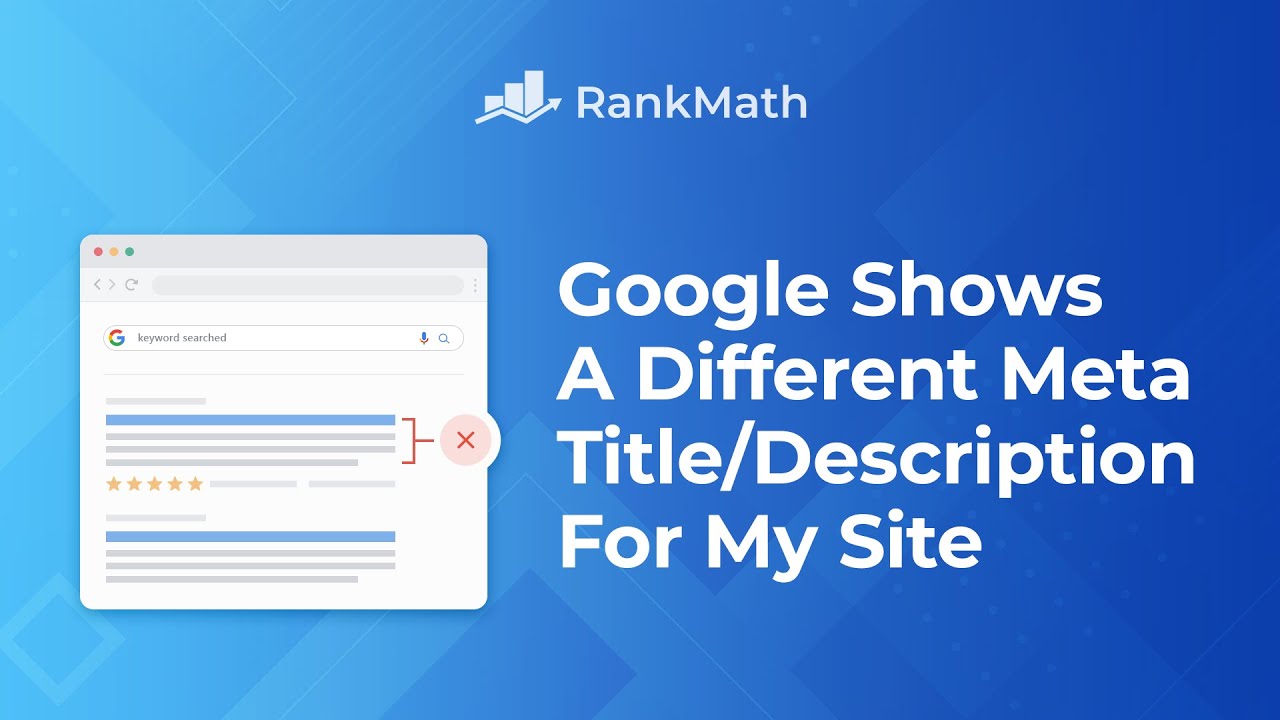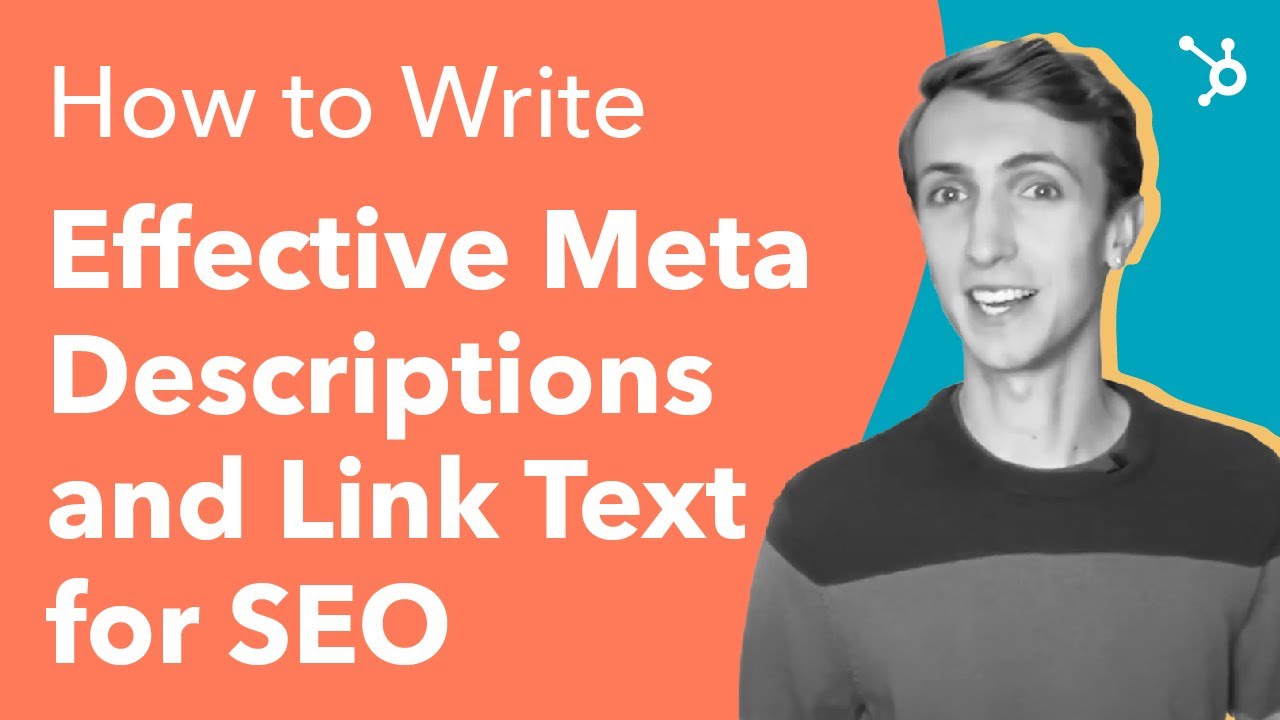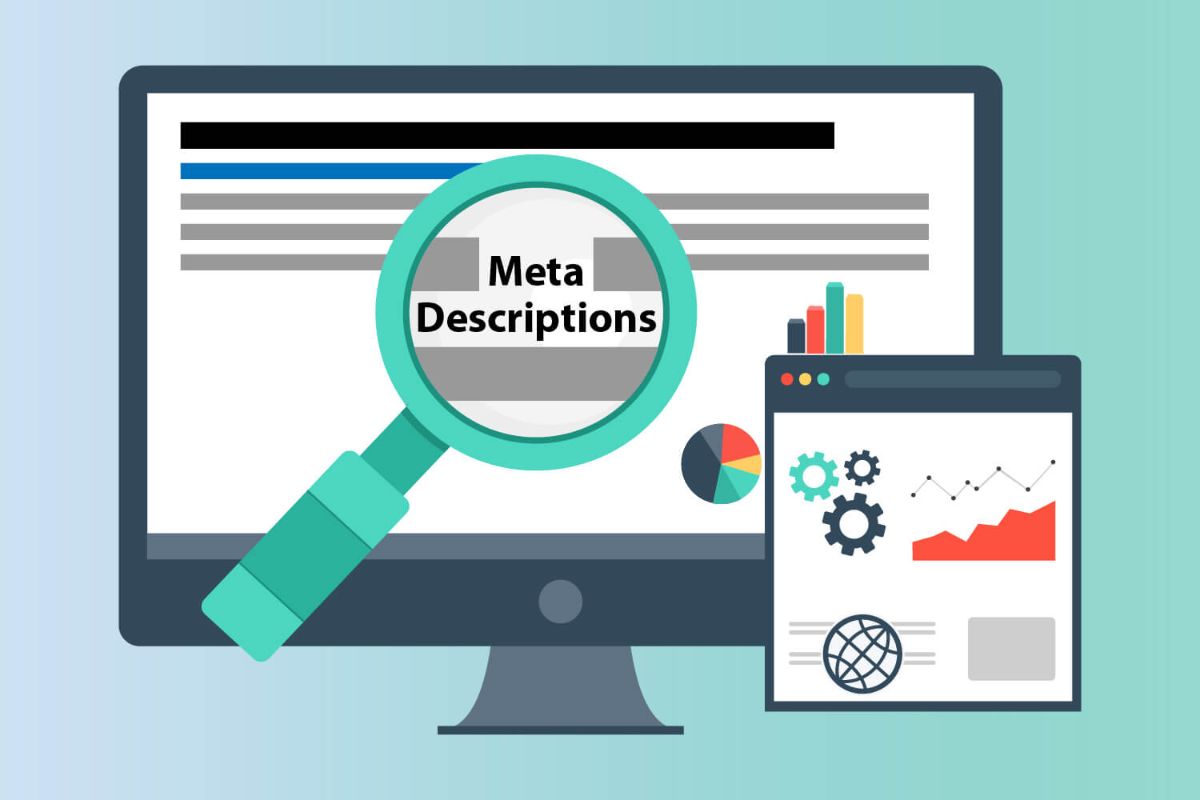Meta descriptions SEOhave always been a very important part of SEO.
Even though they don't help with rankings, they do help with other goals, like getting more people to click on your listing instead of ones that aren't as interesting.
Meta descriptionsare considered an indirect signal because they don't have a direct effect on where a website ranks in search results.
But does that mean you shouldn't pay attention to them as part of your SEO?
Not even close!
What Is Meta Description?

What Are Page Titles and Meta Descriptions?
A meta description is a part of your meta tags that helps people understand what your page is about.
This snippet of text may show up under your headline in the search engineresults.
However, sometimes search engines will pull a snippet of text from the page's main body copy instead.
If you right-click on a page and choose "view source" or "view page source," you can find the meta description:
When you look at the page's code, you'll probably find a meta description tag that looks something like this:
<meta name=”description” content=”Meta descriptionscan have a surprisingly large impact on your search marketing campaigns; find out how…” />
<meta name=”keywords” content=”meta description,google meta description,meta name description” />
<meta name=”robots” content=”index,follow” />
This information is used for a few things, and one of them is to be the snippet of text on the SERPwhen someone searches for something your page ranks for.
The meta description should tell people using search engines what they'll find on your site if they click through.
Why Set A Meta Description?
Its goal is simple: to get someone who is looking for something on Google to click on your link.
In other words, search engines use meta descriptions to get people to click on a link.
Search engines say that the meta description doesn't help SEOdirectly because they don't use it in how they rank pages.
But there is an indirect benefit: Google uses click-through rate (CTR) to figure out if you're a good result.
If more people click on your result, Google thinks it's a good result and will move you up the rankings based on where you are.
This is why it's so important to optimize your titles and meta descriptions.
Unfortunately, you can't be sure that Google will show the meta description you wrote.
But since there is a chance it will, it is always worth your time to add it to your post or page.
Why Meta Descriptions SEO Important?
Do meta descriptions affect where a site ranks in a search?
It depends.
In September 2009, Google said that neither meta descriptions nor meta keywordsare used to rank websites in Google's search results.
The meta description can, however, change the click-through rate (CTR) of a page in Google SERPs, which can help a page rank higher.
These short paragraphs are the webmaster's chance to "advertise" content to searchers, and the searcher's chance to decide if the content is likely to be relevant to their query and have the information they're looking for.
It's important to put some effort into writing meta descriptions because they have an indirect effect on search rankings and can have a big effect on how users behave.
Users will click on content that interests them and answers their questions, so keep the user in mind when writing your meta description.
Searchers will like good content, but you have to get them to your site in the first place.
Why Do Meta Descriptions Matter?
Meta description tags can make a big difference in how well your website ranks in search engines.
The meta description is most important for one thing:
"Organic ad text" is what your meta description does.
This means that when your ad ranks for a keyword, Google and other search engines will often show the meta description as a summary of the page.
Because of this, the meta description is just as important as the ad text.
The number of clicks on your organic search results can go up if your meta description is interesting.
That means more people who see your page in the search results will click through to your site.
Even if your rank stays the same, that means you'll get more traffic.
Why Won't Google Use My Meta Description?

Why Does Google Show a Different Title/Meta Description in the SERPs? Rank Math SEO
Search engines often ignore the meta descriptions of pages and show different text in the SERP snippet than what is written in the HTML of the page.
It's hard to know exactly when this will happen, but it usually happens when Google doesn't think the existing meta description answers a user's search question well enough.
Instead uses a bit of text from the same page that it thinks is a better or more compelling answer.
When deciding if you need a meta description, you should think about how many users search terms the page is trying to rank for.
If the page is about one to three highly searched terms or phrases, you should write your own meta description to attract people who use those terms in their search queries.
If the page is trying to get long-tail traffic (traffic that comes from three or more keyword phrases), it might be better to let the search engines write the meta description.
The reason is simple: When search engines put together a meta description, they always show the keywords and surrounding phrases that the user has searched for as closely as they can.
If a webmaster adds a meta description to a page's code, what they write could actually hurt how relevant the page is to the query, depending on what they write.
How Long Should A Meta Description Be?
The default length for meta descriptions has been increased by Google just recently.
In the past, it was suggested that the length of meta descriptions should be limited to no more than 160 characters.
Beginning in 2017, Google will display a maximum of 275 characters on the search engine results page (SERP).
As a result, you ought to optimize the length of your meta description tags to be anything between 275 and 300 characters long.
When To Write A Meta Description?
Even if you don't believe it, this article won't tell you to hurry up and make sure all of your pages have meta descriptions.
One reason is that Google creates these descriptions automatically by pulling from the content of the web page.
This gives Google more flexibility than a copywriter can manage.
It's hard (but worth it!) to optimize a page for one keyword.
When people find a page through different search terms, it's hard to optimize it properly.
Also, for businesses with hundreds or even thousands of pages, it would be a Herculean task to go back and write meta descriptions for each one.
Instead, you should put most of your attention on the pages that get the most traffic from search engines.
Take your top 10 or 20 pages and ask, "Are we really selling the product here, or is there a way we can improve the click-through rate?"
When you or a hired writer create a new page of content in the future, it's a good idea to have them write a meta description on the resource's details page in the Shopify admin.
This will not only help your SEO, but it will also force you to say what the page is about in a few words.
This becomes the "topic sentence" for the page, and it helps you figure out if the copy on the page keeps up with what the meta description says it will do.
How Can You Write Better Meta Descriptions?

How to Write Effective Meta Descriptions and Link Text for SEO
Keep It Up To 155 Characters
There is no one right length; it all depends on what you want to say.
You should use enough space to get your point across, but you should also keep it short and to the point.
But if you look at Google's search results, you'll mostly see snippets that are 120 to 156 characters long.
We can't completely change what Google shows in the search results, though.
Sometimes it shows the meta description, and sometimes it just takes a few sentences from your copy.
In either case, keeping it short is your best bet.
So, if Google decides to show what you wrote for the meta description, it won't be cut off.
Use Active Voice And Make It Actionable
If you think of the meta description as an invitation to your page, you should think about your user and what might (or might not) make them want to visit your page.
Make sure your description isn't boring, hard to understand, or too vague.
People need to know what to look for on your page.
Include A Call-to-action
"Hello, we have this new product, and you want it. Learn more!
This is similar to what we said about the active voice, but we wanted to say it again to make sure you got the point.
Your sales text is the meta description.
In this case, though, the "product" you're trying to sell is the linked page.
Invitations like "Learn more," "Get it now," and "Try it for free" are useful, and we also use them.
Use Your Main Word Or Phrase
If the search keyword matches part of the text in the meta description, Google is more likely to use it and highlight it in the search results.
This will make the link to your website look even better.
Google sometimes even points out words that are similar.
When your results are brought out, they stand out even more.
Show Specifications, Where Possible
Focusing on the technical specs can be a good idea if you have a product in your Shopify or WooCommerce store that is for tech-savvy people.
You can include things like the manufacturer, SKU, price, and so on.
If the visitor is already interested in that product, you probably won't have to do much to get them to buy it.
Keep in mind that you should try to get rich snippets to improve your results in this way.
Make Sure It Matches The Content Of The Page
This one is very important.
Google will find out if you try to trick people into clicking on your result by using the meta descriptions.
If you do it, they might even punish you.
But wrong descriptions will probably also cause more people to leave your site.
Which will also make people less likely to trust your business.
Just because of that, it's a bad idea.
That's why the meta description should match the page's content.
Make It Unique
Putting the date in the preview snippet.
It's important to keep that in mind when deciding how long your meta description should be.
You can't directly change whether or not this date is shown, but you can try to change the dates they use in the search results.
If your meta description is the same as that of other pages, Google will make it harder for people to find what they want.
Even though the titles of your pages might be different, they will all look the same because the descriptions are the same.
You'd be better off not writing any meta descriptions at all instead of writing duplicates.
Google will choose a small piece of the page that has the keyword used in the query.
Still, the best thing to do is write a unique meta description for every page you want to rank.
People Also Ask
What Is A Meta Description SEO?
A meta description is a part of your meta tags that helps people understand what your page is about.
This snippet of text may show up under your headline in the search engine results.
However, sometimes search engines will pull a snippet of text from the page's main body copy instead.
What Does A Meta Description Do?
A meta description is an HTML tag that gives a short summary of what the page is about.
It's the bit of text, usually about 160 characters long, that shows up under the title of your page in search engine results.
How Do I Write A Good Meta Description?
A compelling summary of the page someone is about to click on should be in the meta description.
It should be clear what they will get if they click through.
A target keyword should be used in the meta description to help search engines find and rank the page.
Conclusion
The meta description is a small but powerful part of search engine optimization.
It's your chance to beat out your competitors.
Too many businesses don't do this, which means they miss out on an important chance to improve CTR.
Make sure your website's meta description is interesting and makes people want to choose you over your competitors.
At the end of the day, SEO is all about making the best search experience for the person doing the search.
It's not about chasing the algorithm.

